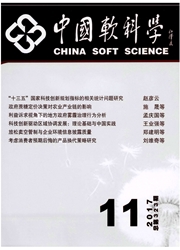

 中文摘要:
中文摘要:
企业对CSR的自我表述(“说什么”)是利益相关者判断和识别企业社会责任履行情况的重要信息。但是,学者们对于企业CSR的自我表述与实践的实质性(“做什么”)的关系看法并不一致。基于569家上市公司2009—2011年的数据,本研究实证考察了企业CSR自我表述与实践实质性的关系。结果显示,当面对较多的来自公众关注和监督的压力时,企业CSR自我表述就会给企业带来正面的约束力,促使企业的社会责任实践更具有实质性。同时,还发现企业可见度和市场化程度在CSR自我表述与实践实质性之间起着显著的正向调节作用。研究首次基于中国企业的数据检验了CSR的意义建构理论模型,同时也为深入了解和规范中国企业的CSR自我表述提供了实证启示。
 英文摘要:
英文摘要:
Formal self-presentation of CSR is the critical information which various stakeholders can base on to understand firms' CSR engagement. However, prior studies do not provide consistent results about the relationship between self-presentation of CSR and the substantialness of CSR engagement. Based on the data of 569 public companies during 2009 - 2011, we empirically test the effects of elf-presentation of CSR on the substantialness of CSR engagement. The results show that when confronted with scrutiny and challenge from public, formal claims of CSR can subject firms to heightened expectations and criticism and may become a weapon with which to arrack a firms' consistency and sincerity. Therefore, the self-presentation of CSR can have a positive influence on the substantialness of CSR engagement. Moreover, we also found firm visibility and institutional environment (e. g. marketization) would positively moderate the relationship between the self-presentation of CSR and the substantialness of CSR engagement.
 同期刊论文项目
同期刊论文项目
 同项目期刊论文
同项目期刊论文
 期刊信息
期刊信息
